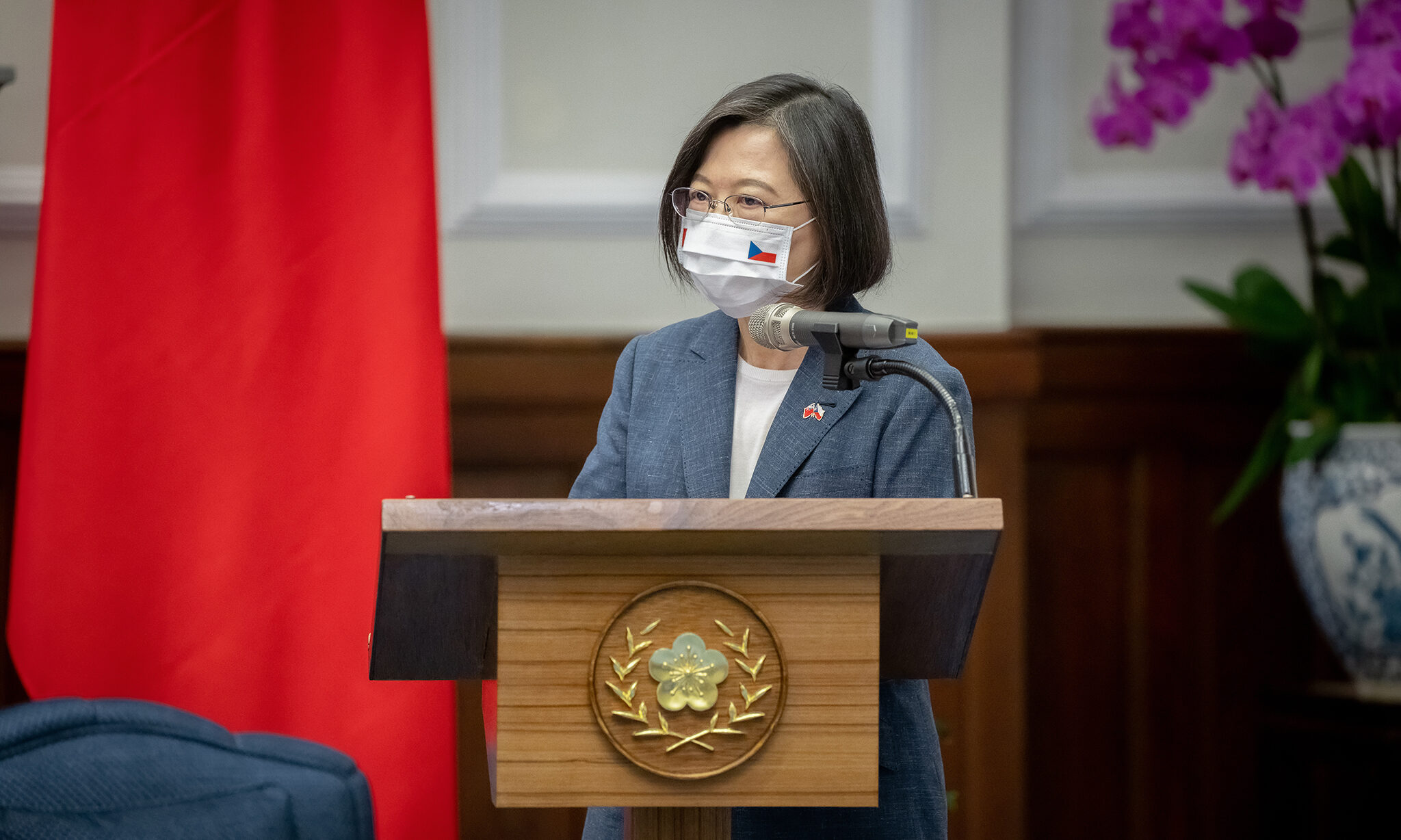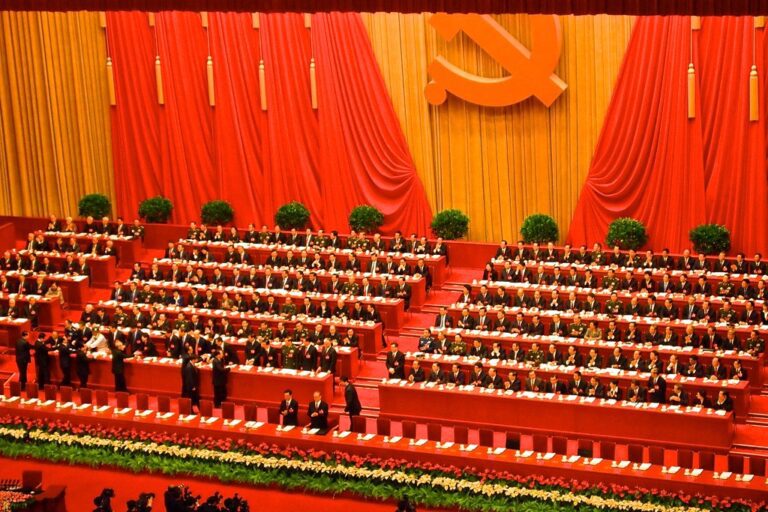
As the revisionism of China and Russia threatens international peace, Central and Eastern Europe and Taiwan hold the key to a “free and open Indo-Pacific” and, more broadly, the rules-based international order.
On January 30, 2023, soon after his landslide victory, the President-elect of the Czech Republic, Petr Pavel, held a telephone conversation with Taiwanese President Tsai Ing-wen. The call followed a conversation with Ukrainian President Volodymyr Zelenskyy the previous day. Pavel assured Tsai that both countries “share the values of freedom, democracy, and human rights,” expressing his hope to “meet [her] in person in the future.” This telephone call between the leaders of the two nations, devoid of official diplomatic relations, symbolizes an increasing sentiment of solidarity among those who face a similar peril.
For outsiders, the ties between Central and Eastern Europe (CEE) and Taiwan, or the Republic of China (ROC), may be difficult to grasp. Geographical distance tends to obscure the developments occurring between the opposite sides of Eurasia. Despite this distance, many CEE countries fully sympathize with Taiwan, sharing analogous history of democracy and facing a similar fate. Taiwan is often seen by those in the CEE as a threatened alter ego; someone in need who best stands for the values they wish to defend themselves.
Amid strategic competition between the US and China, it is not surprising that many nations in CEE, including Czechia, Lithuania, and Slovakia, have approached Taiwan and distanced themselves from Beijing. However, the rapprochement should not be regarded as an insulated development. As the revisionism in both China and Russia gravely threatens international peace, the partnership with Taiwan offers more than what static diplomatic relations can. Having a global significance, it could hold the key to a “free and open Indo-Pacific” and, more broadly, the rules-based international order.
Pivot to Normative Diplomacy
In recent years, CEE has become the center of gravity in European politics. CEE states have been the drivers of economic growth in Europe and advocates of European values and identity. The EU member states across CEE, with the important exception of Hungary, have eagerly supported Ukraine after Russia’s invasion in February 2022. The tide has changed for what used to be a Western-driven European union. It is now impractical to carry out EU actions without considering the trend-setting members from the former Eastern Bloc.
Like other EU members, practically all CEE states were enthusiastic about engaging with China from the early 2010s. Most joined the cooperative framework with China, called “16+1” (or “17+1” to include Greece). Nevertheless, the disappointment with lackluster Chinese investment and the unrealized promise of the Chinese market, followed by the COVID-19 crisis, altered the terms of CEE-China relations. European views on China also changed as China’s bellicose “wolf-warrior” diplomacy revealed its true face. While the “16+1” became a moribund legacy of Beijing’s expansive diplomacy, the relations with Taipei flourished, sometimes going beyond the conventional parameters of Brussels’s diplomacy.
This volte-face corresponds with the pivot to normative diplomacy, emphasizing the shared values with like-minded partners more than the lucrative profits from trading with China. For example, Poland strengthened its strategic partnership with Japan in 2021, aiming to “promote the common values and principles in the international and regional arenas,” including realizing a “Free and Open Indo-Pacific.” The Czech Republic also sought to enhance its engagement in the Indo-Pacific, issuing its “Indo-Pacific Strategy” paper in October 2022. Considering Taiwan as a partner in the Indo-Pacific, as did the EU, the non-regional landlocked country intelligently formulated its diplomatic objectives to ride on the Indo-Pacific agenda.
CEE Countries as Trusted Partners of Taiwan
Welcoming the parliamentary delegation from Poland in December 2022, President Tsai Ing-wen stated, “Taiwan, Poland, and Ukraine all stand on the frontlines of authoritarian expansion.” While expressing Taipei’s solidarity with Ukraine, her remark reflected a sense of crisis confronting both sides of Eurasia. The ever-increasing CEE-Taiwan ties demonstrate the solidarity of Davids confronting a Goliath, yet the significance of these ties goes beyond their apparent symbolism.
In recent years, Taiwan has been enthusiastically connected with like-minded states in the western periphery of Eurasia. Departing from the pro-China foreign policy of the previous Kuomintang administration, the ROC government under President Tsai has further expanded its diplomatic horizon. To compensate for its isolation, the government has explored almost all the means available outside the usual diplomatic channels. In the process, CEE countries became Taiwan’s prominent partners.
With the growing possibility of conflict, Taiwan needs as many reliable partners as possible. In the event of China’s attack on the island, the US and, possibly, Japan would be critical partners in Taiwan’s defense in different capacities, but Taiwan would need to build a broader coalition of friendly nations in its support. Even if most of them are unlikely to be directly involved in defense on the island, including Japan, Taiwan’s supporters are expected to form an ad hoc coalition, which it will need to resist and win.
The CEE is key, as it is part of both the EU and NATO. Arguably, distant from China, many CEE countries, including Taiwan’s staunch backers, would probably not provide the same level of logistical support for Taiwan as they have done for Ukraine. The same is true for the trans-Atlantic alliance. Nevertheless, the solidarity of the CEE states will be essential in forming an extended layer of pro-Taipei support in general and within the EU and NATO in particular.
Taiwan’s Relevance to Europe
In a fragmented multipolar world, every state must have trusted friends for its survival. Even if national interests prevail over affinity, a state can hardly pursue its interests without allies or partners. The existence of friends with shared values and interests is vital, especially for the survival of an isolated state such as Taiwan.
It is also in the interest of the EU to embrace Taiwan as its Indo-Pacific counterpart. Often eclipsed in interstate relations, Taiwan presents both symbolic and strategic values. Resisting an autocratic giant in East Asia and safeguarding peaceful order in the Western Pacific, Taiwan is the beacon of the free world. Its future will depend on the fate of the island. Although only some in Europe may be aware, the impact of Taiwan’s loss to China on the European continent will be immense. Disruption of the orderly supply of semiconductors is only one aspect.
The values-based engagement with the Indo-Pacific that we see in Czechia and other nations in CEE is a welcome development for the world. The Russian invasion of Ukraine and Beijing’s tacit support for Moscow have once again clarified China’s incremental threat to Europe. Time will tell if the precedents set by the leading CEE states will have enough leverage in the minds of political leaders in Germany and other EU countries. However, if Europe wants to champion its values and continuously play a normative role on the world stage, the choice seems clear enough.
Written by
Kei Hakata
Kei Hakata is a Professor at Seikei University in Tokyo, Japan. He specializes in international politics and security affairs focusing on the Indo-Pacific. His latest book, co-edited with Brendon J. Cannon, is “Indo-Pacific Strategies: Navigating Geopolitics at the Dawn of a New Age" (Routledge, 2021).

